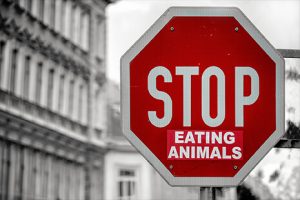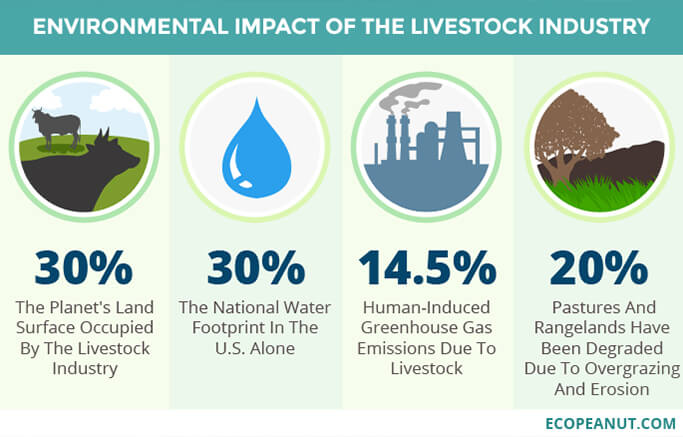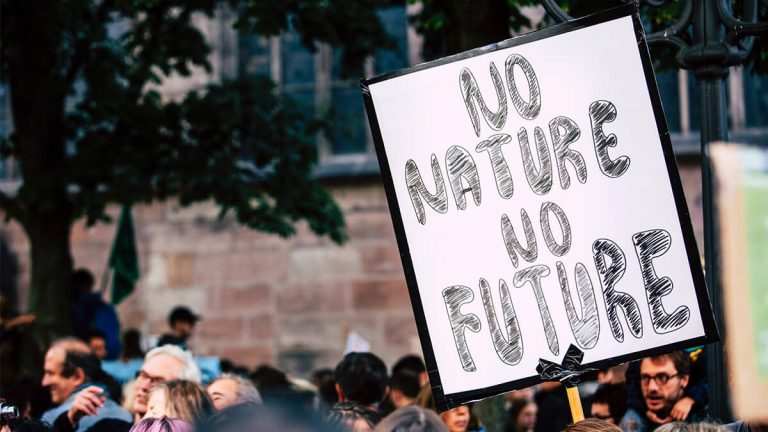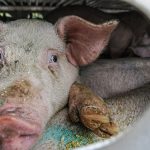Taking responsibility for our actions is one of the most important things that we can do as humans. Whether we like it or not, the world around us is changing, and the environment is beginning to deteriorate thanks to climate change and a range of other contributing factors. If you don’t believe us, then believe the United Nations, who have said that we have until 2030 to prevent a climate change crisis. Further stating.
“the greenhouse gas footprint of animal agriculture rivals every car, truck, bus, ship, aeroplane, and rocket ship combined. There is no pathway to achieve the Paris climate objectives without a massive decrease in the scale of animal agriculture.”
Maybe you are wondering how exactly you can do that, well knowledge is power, and today we look to give you strength. By highlighting how red meat consumption DOES harm the environment, we can help you take mindful steps towards reducing your red meat intake and doing your bit to help the environment.
Let’s begin with a few sobering facts.
- Red meat production requires 160 times more land and ten times the level of greenhouse gases than crop production does, meaning it is less economical in terms of space and helping protect the environment.
- One kilo of red meat produced causes 36 kilos of C02 to be released into the atmosphere.
- The Amazon rainforest fires of 2019 were, for the most part, started by cattle farmers that were looking to destroy the land to produce more beef due to high demand.
If we gave up eating beef we would have roughly 20 to 30 times more land for food than we have now.
James Lovelock
 Unfortunately, many meat production companies have direct links to issues like deforestation and animal trafficking. Many, if not most supermarkets buy their meat from these big companies and the cycle continues. Many people enjoy their burgers and steaks that they buy from their local supermarket, but with just a small bit of research into where their meat is coming from, they would not be so quick to enjoy them.
Unfortunately, many meat production companies have direct links to issues like deforestation and animal trafficking. Many, if not most supermarkets buy their meat from these big companies and the cycle continues. Many people enjoy their burgers and steaks that they buy from their local supermarket, but with just a small bit of research into where their meat is coming from, they would not be so quick to enjoy them.
Also Read: Is it even possible to restore our planet?
So what exactly does this industrial red meat production do to the environment?
- Causes Climate Change: As mentioned above by the UN, the overall impact that meat production has on the globe trumps any mode of transport combined. When deforestation and forest fires increase meat production, massive levels of carbon dioxide are released into the atmosphere. Because there is a correlation between higher carbon dioxide levels and increased global warming, it is easy to relate red meat production and its consequences to climate change issues.

-
- Land grabbing and modern-day slavery: One of the leading countries associated with all of the abuses to climate change and people is Brazil. Traditional and Indigenous groups work hard to prevent such terrible deforestation. Still, employees of soya and meat groups are known to abduct and kill members of the conventional groups to halt their progress. Also, many meat companies worldwide have been associated with many suppliers that cause fires and operate on indigenous lands illegally. Furthermore, their workers have been known to endure horrible working conditions. Land grabbing is a prominent issue in many countries throughout the world and in South America in particular, encouraging miners, groups and farmers to occupy indigenous lands without the need to give a reason to continue with industrial meat production.
- Eating red meat is inefficient: Did you know that if everyone in the world were to switch to a plant or vegetable-based diet, we would need 70-80% less farmland than we use today for the same results! This is because industrial meat production requires 3-4x more space and land than crops do. Similarly, it takes far less land to grow food for humans to eat on land than to grow food to feed to animals to feed to humans. Not eating red meat cuts out the middle-man. Referencing the 2030 quote from the UN earlier, it is suggested that for the world to avoid some climate disaster, countries like the UK and US would need to reduce meat and dairy intake by 70%. This is shocking because it highlights the scale of change that is required. Ultimately, people will need to make that change for themselves, and many supermarkets will need to introduce more plant-based or ethical meat sources. The issue is, due to the fact that red meat is so popular and the food farming industry is a multi billion dollar enterprise, we may never see this ethical chance take place. However, by gradually making that change towards a less red meat driven diet, we can feed more people with the foods and nutrition they need and not destroy forests, land, and livelihoods.


